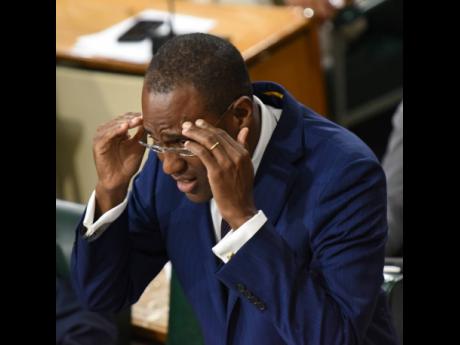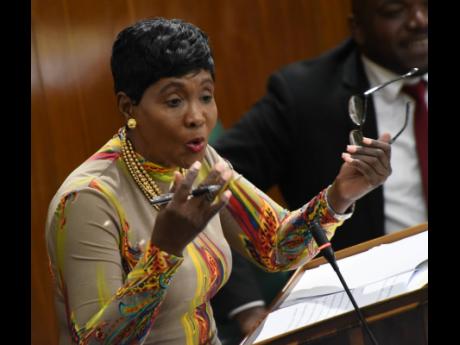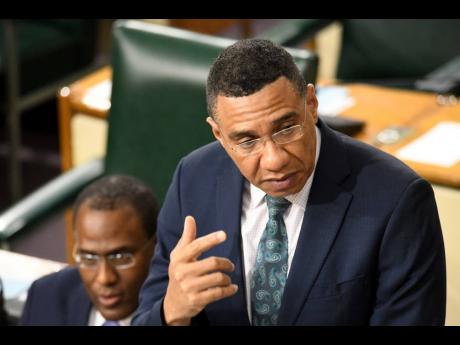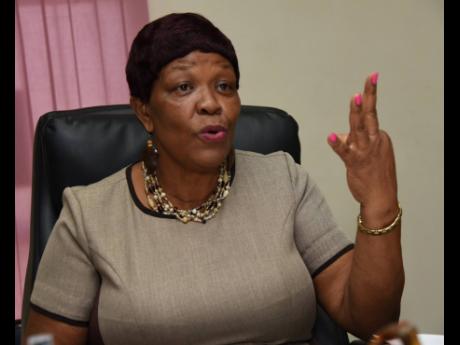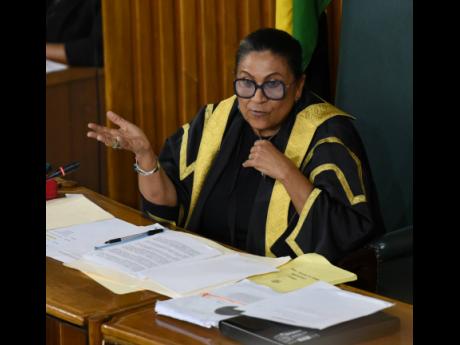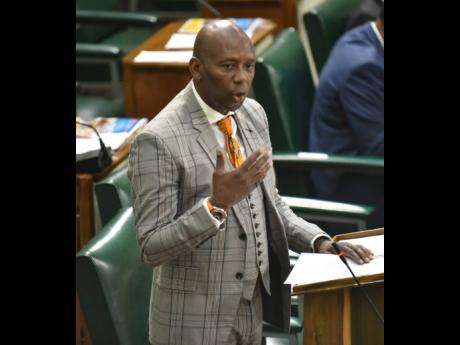CLOSE CALL
Absentee MPs escape expulsion with narrow window to act under House rules
A number of legislators came precariously close to losing their seats after missing several consecutive sittings in 2022, a review of parliamentary records has revealed. The standing orders dictate that a member of the Lower House who is prevented...
A number of legislators came precariously close to losing their seats after missing several consecutive sittings in 2022, a review of parliamentary records has revealed.
The standing orders dictate that a member of the Lower House who is prevented from attending a House meeting should send a written notice to the Speaker “as early as possible”.
A member who misses more than six consecutive sittings during a period not exceeding 21 days shall “vacate his seat in the Lower House under Section 41 of the Jamaica (Constitution) Order in Council, 1962”.
However, that provision is subjected to the member failing to obtain a leave of absence and, within 15 days after the end of the period aforesaid, to satisfy the Speaker in writing that such failure was unavoidable.
Similarly, the standing orders for the Senate indicate that a member who misses more than five consecutive sittings within 41 days should vacate the seat.
But with the Lower House meeting at most six times in 21 days last year, members who were consistently absent have fallen in the clear. A similar situation exists for senators as with weekly weetings, they have a maximum of five sittings in the 41-day window.
A reform of the country’s Constitution to allow for the expulsion of routine absentees from the House of Representatives must be pursued, lawyers have argued, amid sustained debate over the 200 per cent salary increase for members of parliament (MPs) and the framework for holding them accountable.
The reform must include the “tightening” of Parliament’s standing orders, the lawyers insisted, which offer legislators in the Lower House who run afoul multiple lifelines.
Parliamentary representation, according to constitutional lawyer Dr Lloyd Barnett, involves the elected MP bringing to the House matters concerning the welfare and interests of the persons he or she represents.
That, he said, means attending Parliament to lobby on behalf of constituents, which often includes the tabling of motions and raising questions.
The second aspect, he told The Sunday Gleaner, is to listen to proposals and statements which affect national interest and, therefore, may ultimately affect the interest of constituents and to participate in debates by speaking and voting on motions.
The participation in the review of legislation is the third role, he said.
“All these functions require the regular attendance at the parliamentary meetings,” Barnett said. “If the member is unable to attend the Parliament for a protracted time, then the member is unable to carry out the essentials of the parliamentary functions, and should therefore, in my view, resign.”
Barnett said that as the country undertakes constitutional reform, this is a matter that should be addressed.
In a Sunday Gleaner interview on Friday, Leader of Opposition Business Phillip Paulwell argued that the standing orders must be amended to make it easier to bring to book MPs who miss a number of meetings consecutively. He said the move was necessary, acknowledging that the Lower House “hardly” meets in excess of four times in a one-month period outside of the sectoral debates.
“So I believe that that number ought to extend beyond a month and it should be consecutive meetings with no time constraints. This means that if the Parliament only meets seven times in three months, then you would be asked to vacate if you are absent without proper reason rather than as it now stands. I think those reforms are necessary,” he argued.
“As we are dealing with job descriptions now and there is a select committee of the Parliament dealing with that, then perhaps all of these things should be within that joint group to decide on as a matter of urgency,” he added.
Constitutional lawyer Michael Hylton noted that the 21 days stipulated are interpreted as calendar and not sitting days. So missing more than six consecutive sittings during any 21-day period will result in automatic vacating the seat, he said.
“Leave can be obtained during the 21 days or within 15 days after. If the latter, he must satisfy the Speaker that the absence was unavoidable. [An] apology is irrelevant. If a member is absent for months, I think the Speaker would have to keep granting leave every month,” Hylton said, referring to the case of Dr Peter Phillips.
Barnett said that the provisions require “review and tightening” because after the initial period of 21 days, the absence of the member may be approved or excused by the Speaker on the giving of sufficient reasons for their attendance.
“That should be subject to specific time limits and regular reviews so that the absence is not protracted. There is a right in the constituents to have their representative regularly present and participating in the business of Parliament so that if the provisions for granting excuses are too loose and too unregulated, then it is inconsistent with the fulfilment of those duties,” said Barnett.
Phillips, the St Andrew East Central representative who is battling colon cancer, and octogenarian Mike Henry of Clarendon Central both attended only three of 53 sittings in 2022, according to parliamentary attendance records.
House Speaker Marisa Dalrymple-Philibert did not respond to several Sunday Gleaner requests for comment on the matter, including whether leaves were granted to any members and for what periods.
Parliamentary records sent to The Sunday Gleaner show that Finance Minister Dr Nigel Clarke, who represents St Andrew North Western, and opposition legislator Denise Daley, who represents St Catherine Eastern, missed six consecutive sittings within 21 days last year.
The records also indicated that others such as Prime Minister Andrew Holness, who represents St Andrew West Central; James Robertson of Western St Thomas; and Hugh Graham of St Catherine North Western missed six sittings between June 7 and June 28 last year – a 22-day period.
PARLIAMENT YET TO ACCOUNT FULLY FOR SOME MEMEBERS
Weeks after The Sunday Gleaner sent multiple requests for data clarification, the Parliament’s administrative arm has not provided updates to the initial data, which did not account for all members at all sittings.
Further, it declined to provide copies of apologies submitted by MPs who missed consecutive sittings.
“Please be advised that the apologies sent by members cannot be shared with the public as it may contain private information. Further, this information would be protected under Section 22 of the Access to Information Act,” it said in an emailed response to The Sunday Gleaner on Thursday.
But Paulwell argued that apologies from members ought not to be kept private.
He said that where an elected representative has good reason for absence, it should be stated upfront. He noted that this is an important aspect of accountability.
At the same time, he called for “a radical shift” in the way parliamentary attendance is recorded, even as Jamaicans press for greater accountability from MPs.
“People want to know when their MPs arrive – the precise times. They want to know how long they stay. I believe that that ought to be routinely documented and rather than it being available to media annually, I think every month there should be some publication done of the attendance,” he said.
Added to that, he said that the formal notification of excuses that MPs write to the Speaker are not effectively communicated in a document for people to peruse.
He pointed to Opposition Leader Mark Golding, who said that his written notices to Speaker Marisa Dalrymple-Philibert and House Clerk Valrie Curtis were not accurately documented in parliamentary records.
The Sunday Gleaner has seen nine notices sent by Golding, although parliamentary records indicate that he apologised only four times.
St Catherine South Eastern MP Robert Miller, too, said Parliament’s recordkeeping was inaccurate. He said that he missed two sittings last year while he was away on government business, but the Parliament has on record three missed sittings. There was also one sitting which the Parliament could not account for.
Leader of Government Business Edmund Bartlett, who told The Sunday Gleaner that he is away on government business, did not respond to a request for comment on the issue up to press time.


